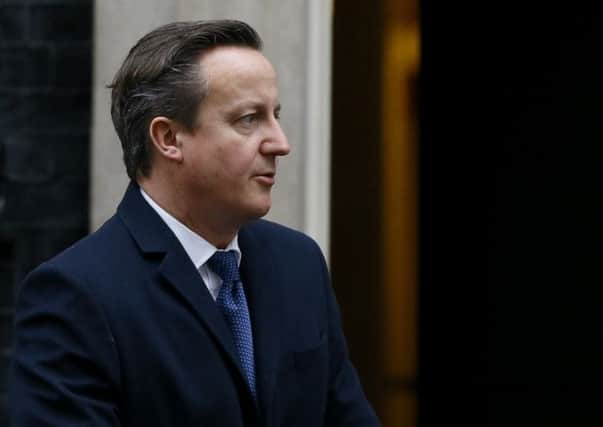English backlash over Smith Commission proposals


Prime Minister David Cameron wants to use the new devolution powers proposed for Scotland to prevent Scottish MPs from voting on income tax in the Commons, his spokesman has confirmed.
In an early rift in the Smith Commission consensus, a Downing Street spokesman said the Prime Minister wants to apply English votes for English laws to future Commons votes on income tax rates.
Advertisement
Hide AdAdvertisement
Hide AdThis comes despite all five parties in the Smith Commission agreeing in their report that Scottish MPs should continue to vote on UK budgets, “including income tax”.
The Smith package of proposals met with a furious backlash in the Commons yesterday.
English MPs from both sides of the Commons made demands over issues including English votes for English laws, as Scottish Secretary Alistair Carmichael addressed the Commons.
Concerns were also raised by north of England MPs over Scotland being able to cut air passenger duty in competition with airports in cities such as Newcastle.
However, one senior Tory MP Sir Tony Baldry welcomed the moves saying it would lead to lower taxes as Scotland and the rest of the UK started to go into competition with one another to lower tax rates.
Addressing what might happen with income tax, the Prime Minister’s spokesman said: “There is going to continue to be a UK budget. Of course there are elements where you have seen devolution on financial matters, and in that respect I would say the principle of English votes for English laws applies. In terms of what is for the UK, that will remain UK-wide.”
Mr Carmichael – who described the commission proposals as “a modern blueprint for home rule” – said the view did not reflect government policy.
He added: “This is the Prime Minister’s view, it is not government policy.”
Advertisement
Hide AdAdvertisement
Hide AdLabour shadow Scottish secretary Margaret Curran pointed out that there was a guarantee in the Smith Commission for Scottish MPs to be able to vote on income tax.
She said: “It will be very hard for them [the Tories] to welch on that.”
She added: “It’s very clear that income tax is a shared tax so it is very hard to see how they could separate it out.”
She also noted that the Tories’ commission on devolution chaired by Lord Strathclyde had said “there should not be two classes of MP”.
But in the Commons there was anger from English MPs.
Leading the way, Tory rightwinger Sir Gerald Howarth said: “This is no way to introduce massive constitutional change carrying as it does have major implications for the rest of the UK.”
He said there would be anger that other parts of the UK had not been consulted “not least on English votes for English laws”.
Former leader of the House Sir George Young said that it was “wrong to kick the McKay proposals [on English votes for English laws] into the long grass.”
Advertisement
Hide AdAdvertisement
Hide AdFormer Welsh Secretary John Redwood said it was “unacceptable” for Scottish MPs to vote on income tax.
Tory Treasury committee chairman Andrew Tyrie insisted another “crucial” step would be to address the English grievance that Scottish MPs vote on English laws.
“This case is all the more stronger with full devolution of income tax,” he said.
In a later statement he added that the Smith proposals “should be a basis for discussion not a fait accompli”.
Veteran Tory Sir Edward Leigh said the proposals risked pouring “petrol on the embers of English resentment of Scottish separatism”.
Leader of the House William Hague later said he intends to ensure the government produces a command paper outlining what happens next for England.
Former chancellor Alistair Darling, who led the No campaign in the Scottish independence referendum and had opposed complete devolution of income tax, said the government must be careful not to undermine the strength of the Union and stressed that the “central pillar” of pooled tax-collecting powers must be kept in place.
He said: “As we implement these and as we discuss – and we must discuss further devolution to other parts of the United Kingdom – will you ensure that we do nothing that undermines the integrity and the strength of the United Kingdom?
Advertisement
Hide AdAdvertisement
Hide Ad“In particular that we do not undermine the fiscal union that is one of the central pillars of that United Kingdom.”
Labour Political and Constitutional Reform Committee chairman Graham Allen declared it “a great day for democracy” but stressed anything but a quick implementation of English devolution could fan the flames of English nationalism.
CONNECT WITH THE SCOTSMAN
• Subscribe to our daily newsletter (requires registration) and get the latest news, sport and business headlines delivered to your inbox every morning
SCOTSMAN TABLET AND IPHONE APPS